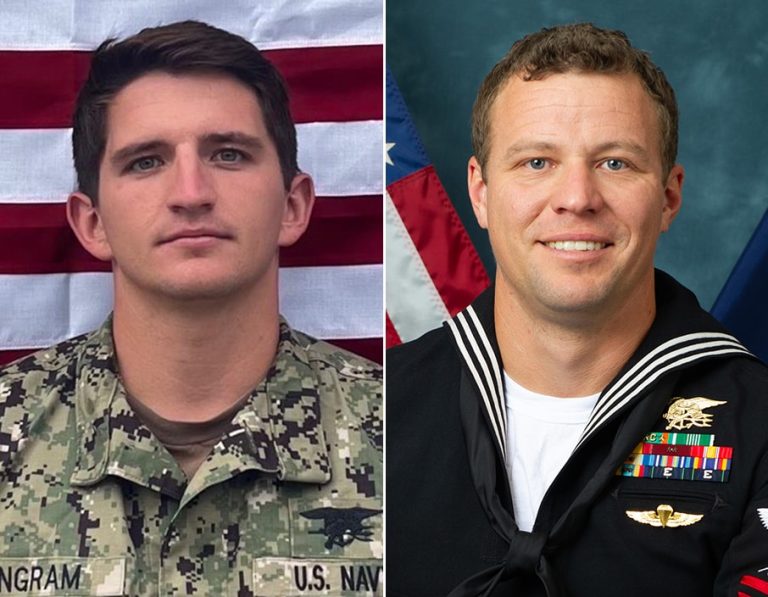The weapons, according to US Central Command, were intended to resupply the Yemeni Houthi movement. Since November, the group has attacked dozens of commercial ships off the Arabian Peninsula, dramatically disrupting commercial shipping in the region and launching an aggressive campaign by the United States and other countries to thwart attacks and weaken the Houthis' arsenal.
Officials said Tehran, which arms the group and appears to provide some targeting assistance, is complicit in the violence.
When the incident occurred on January 11, Chambers, from Maryland, and Ingram, from Texas, were trying to board a suspected smuggling boat off the coast of Somalia. One of them fell from a ladder and the other dived into the sea behind him, and they were quickly swept away by the waves, officials said.
Search and rescue efforts stopped on Sunday after ten days, and the men were declared dead.
Much remains unclear about how Chambers and Ingram were lost so quickly. The mission was carried out with drones and helicopters that were already in the air to provide surveillance, and the sailors were wearing flotation devices, according to a defense official familiar with the operation. The official, who spoke on condition of anonymity to describe the incident, said no one on the boat showed any hostility.
It is unclear whether the Special Forces personnel were wearing other equipment that would aid in the rescue, such as infrared lights or flashers, which US forces often wear on missions so friendly forces can easily identify them. The Navy said the investigation is ongoing.
Both were assigned to SEAL units stationed on the West Coast, part of Naval Special Warfare Group 1, the Navy said. Chambers enlisted in 2012. Ingram did so in 2019, according to short biographies released by the service.
In a statement earlier Monday acknowledging the deaths of the SEALs, President Biden called them “our country's best, who pledged their lives to protect their fellow Americans.”

